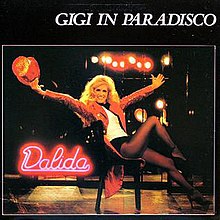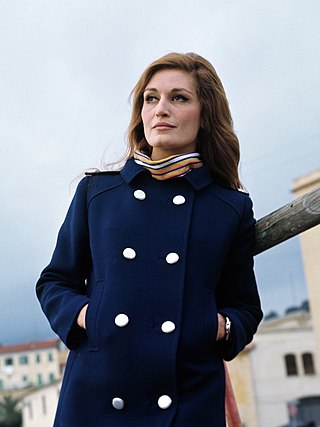
Iolanda Cristina Gigliotti, professionally known as Dalida, was a French singer and actress, born in Egypt to Italian parents. Leading an international career, Dalida has sold over 140 million records worldwide. Her best known songs are "Bambino", "Gondolier", "Les enfants du Pirée", "Le temps des fleurs", "Darla dirladada", "J'attendrai", "Le jour où la pluie viendra", "Gigi l'amoroso", "Salama ya salama", and "Paroles, paroles" featuring spoken word by Alain Delon.
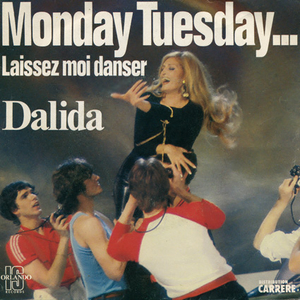
"Monday Tuesday... Laissez moi danser" is a 1979-released disco single by French recording artist Dalida. It was a number one hit and the biggest success of the disco period in France.
"Salma Ya Salama" is an Egyptian Folk song by Dalida from 1976, based on the original song by Sayed Darwish. The track became one of the singer's biggest hits and his remix, released in 1997, was certified silver in France.

"Génération 78" is a song by French singer Dalida featuring French singer Bruno Guillain. It's a megamix of Dalida's previous hits, remixed in disco style, including a new piece written by Jeff Barnel that permeates throughout the song. First released on single in March 1978, it soon became #1 hit in France and achieved success in Europe and Canada.
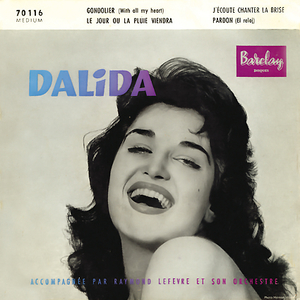
"Gondolier" is a song by the French singer Dalida, first released on EP in December 1957. It was her second major hit after "Bambino". Reaching No. 1 on both the La Bourse des Chansons chart and the Music Hall chart in France, it was the title song for Dalida's 1958 album Gondolier. The song also reached No. 1 on the Belgian and Canadian charts.

Ma mère me disait is the last Dalida album from the 1960s. It includes the hits "L'an 2005" and "Les couleurs de l'amour". Like the previous album, Le temps des fleurs, the songs are more melancholic and mostly ballads.

Julien is a studio album of songs by Dalida recorded and released in 1973.
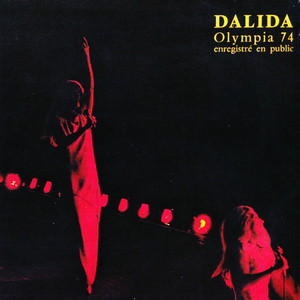
Olympia 74 is an album of songs by Dalida recorded live at the Olympia in Paris and released in 1974.
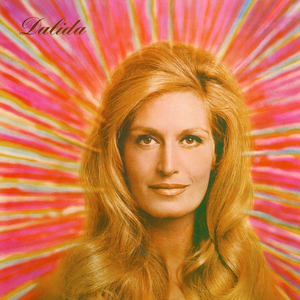
Manuel is a studio album of songs by Dalida recorded and released in 1974.
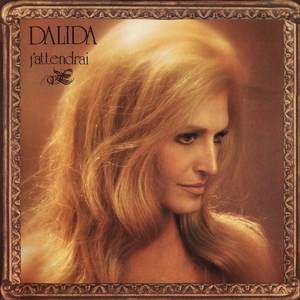
J'attendrai is the 31st studio album by Dalida.
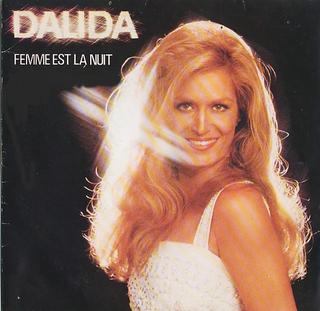
Femme est la nuit is a 1977 album by Dalida.
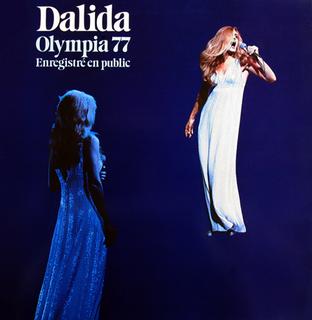
Olympia 77 is an album of songs by Dalida recorded live at the Olympia in Paris and released in 1977.
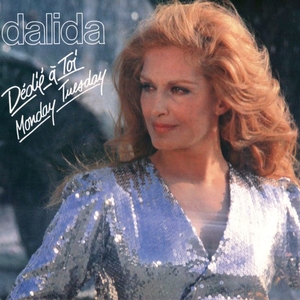
Dédié à toi is a French studio album released by Dalida in 1979.
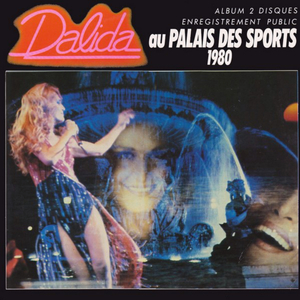
Palais des Sports 80 is a live double album by Dalida, recorded live at the Palais des Sports in Paris in January 1980.

Olympia 81 is a French-language album released in 1981 by French singer Dalida. The album was highly successful and received a gold certification.

Special Dalida is a French studio album released by Dalida at the start of 1982.

Mondialement vôtre is a multi-language album released by Dalida in 1982. This album contains new French single material, plus other language versions of Dalida previous hits and a new Arabic Medley called "Aghani Aghani" that is the biggest hit of the album.

'Les p'tits mots' is a French language album released by Dalida in 1983.

Indra Kuldasaar is a singer, best known in France.
